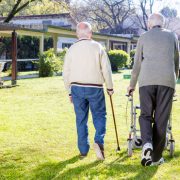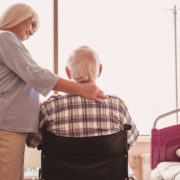Celebrating National Family Reunion Month in Senior Housing
Family reunions in senior housing are important because they bring joy and a sense of belonging to seniors, making them feel loved and connected. Seeing family members can greatly lift their spirits and improve their overall mood. These reunions help strengthen family bonds and create happy memories. Family reunions provide emotional support and enhance the well-being of loved ones living in senior housing facilities. They also give seniors a chance to share stories and experiences with their loved ones, in addition to making them feel more comfortable and supported in their living environment.
National Family Reunion Month
July is the month when the National Family Reunion Month is celebrated. The occasion has become an important part of the family in response to the growing need for connection. Nowadays, family reunions act as a good way to rejuvenate after being caught up in hectic lifestyles. That is because many people rarely get time to spend with their family.
Celebrating Family Reunion Month in senior housing is important, as it provides a good way for families to reach out to loved ones. Families can also celebrate by connecting with them through calls or personal visits to senior housing facilities to watch old family videos.
When planning a family reunion, make sure you create a list of the activities, food, and names of family members to avoid missing any important details.
Celebrate in Senior Housing
Planning a family reunion need not be a challenging endeavor. Follow these suggested ideas to help you enjoy the occasion.
- Plan for the reunion to avoid getting stressed out
- Use a questionnaire to ask family members about the suggested locations and possible dates of the event
- Plan activities that will suit everyone
- Create a backup plan if necessary
- Ask for help from a professional if needed
Family reunion games for the occasion
There are several options when looking for games during a family reunion in senior housing.
- Allow participants to guess who the person is in the photo
- Organize a cook-off using family recipes
- Create a trivia game about a family history
- Consider a contest for completing a puzzle of a family photo
- Collect pictures of family babies and have participants identify them
Additionally, you may consider other options to grace the occasion with family-friendly games such as the following.
- Organizing a karaoke party
- Preparing for an outdoor movie night
- Designing a venue to create an outdoor family camping
- Creating a space to simulate an outdoor barbecue party
- Making a DIY family recipe cookbook
- Organizing a family cooking competition
- Preparing for a baking challenge to make your favorite treats
There are many possibilities for celebrating National Family Reunion Month, just as long as you are ready and your family knows your plan to spend this special occasion with your loved ones in senior housing.
Looking for excellent care in Nebraska? Click here to learn all about Fallbrook Assisted Living!
Fallbrook Assisted Living is proud to offer its services to Fremont, NE, and surrounding areas and cities: Arlington, Cedar Bluffs, Ames Nickerson, Fontanelle, Arlington, Leshara, Colon, and Hooper










